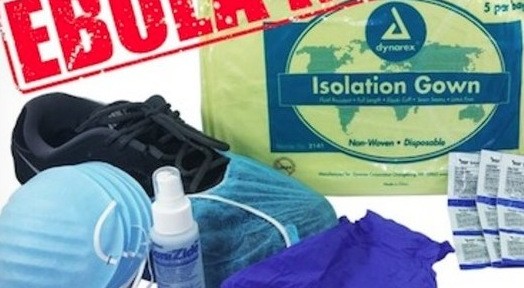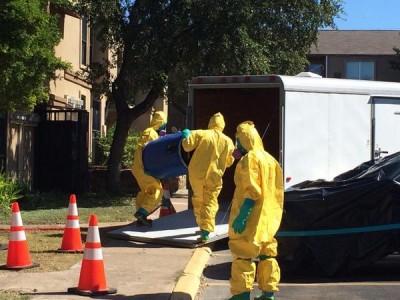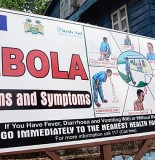Even-though ebola victim Thomas Eric Duncan has died, the virus that ravaged his body lives on, and must be treated with extreme caution.
Ebola thrives in bodily fluids and tissues, even after the victim has died, so as long as there is moisture present and the body is at room temperature, the ebola is still a deadly risk.
|
Advertisement |
At the Dallas hospital where Duncan died today, anyone coming in contact with his body will be required to wear personal protective equipment that includes a scrub suit, cap, gown over the suit, eye protection, face mask, shoe covers and two pairs of gloves. Afterward, they must take off that gear very carefully and dispose them in hazmat containers. The hands then must be thoroughly washed.
Duncan’s body will be wrapped in a cellophane shroud – unwashed. The protocol calls for it to be placed into a zippered leak-proof plastic body bag and then placed into a second bag. The bags and the room will then be disinfected.
The driver who takes the body to the mortuary does not need to wear the protective gear, but the mortuary workers should. The body should be either cremated or placed into a hermetically sealed casket — at which point the remains are deemed safe enough for a funeral.
Many new ebola cases outside of the U.S. are due to mishandling of dead bodies which has prompted the CDC in this country to issue guidelines for hospitals and mortuaries that might handle the remains of others who may succumb to the virus.
h/t nbcnews








